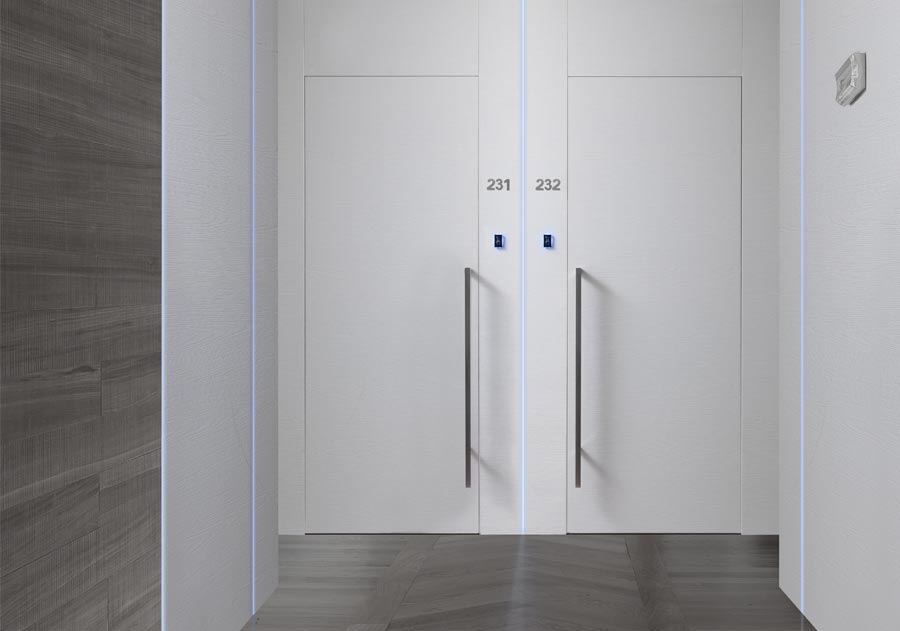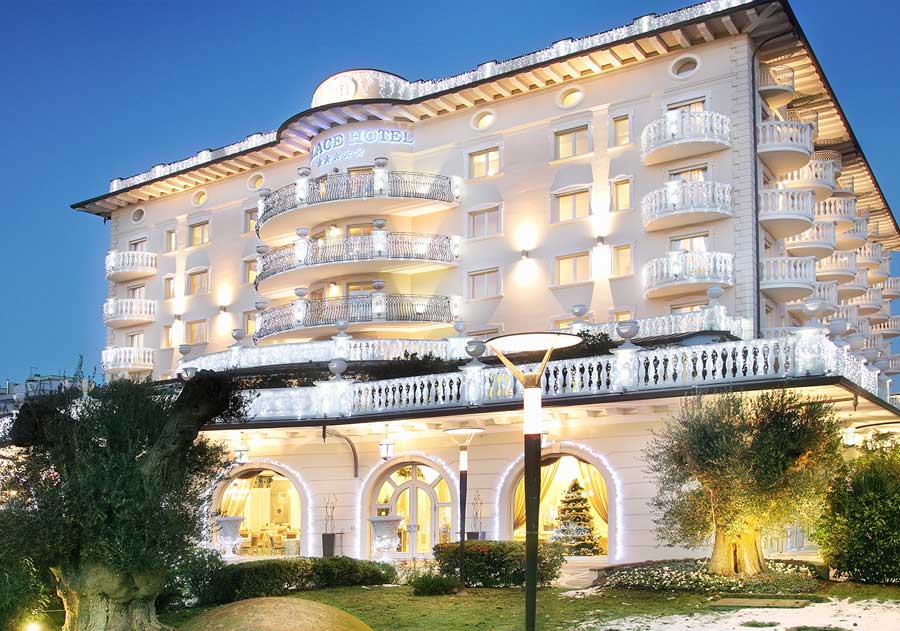| MAGAZINE
Noise in the Hotel, no thanks

How many times have we chosen a beautiful hotel, to stay in on vacation or for business, in a dream location, with beautifully designed rooms – classic or contemporary, depending on our taste – impeccable service… and yet, we couldn’t wait to get away?
It happens, our roommate comes in and we seem to find him or her at the foot of the bed at two o’clock in the morning; or, at the end of an exhausting day of working away, we return to our room for some relaxation and find ourselves caught up in the prolonged loud phone conversation between our roommate and some friend (so much for privacy).
Unfortunately, this is nothing new: soundproofing is one of the major problems plaguing Italy’s hotels.
So much is said about guest well-being without realizing that sleeping badly is one of the highest indices of customer dissatisfaction, no matter how charming an accommodation facility may be. And the problem is further emphasized by the fact that hotel quality disregards star rating and is based on the infamous judgment of guests who, at the first sign of discomfort, flock to review sites dismantling, piece by piece, the work done by operators and contractors.
Their attention can be maniacal when it comes to the details but, often, it borders on the extremely superficial when it comes to something that seems possible to overlook: better to take care of the room’s image than to worry about whether a partition wall is too thin or whether a door is sound-proof. And there you have the problems.
The regulations
Yet, the regulations are clear: in the building sector, the need to ensure sufficient levels of sound insulation according to the activities carried out within it is an obligation.
The Italian Prime Minister’s Decree of December 5, 1997 bears the title “Determination of passive acoustic requirements for buildings” and requires compliance with minimum sound insulation values. In this specific case, we are talking about “buildings used for hotels, boarding houses and similar activities” shown in Table A of the standard.
We will not go into the indices here that constitute the coefficients on which to calculate the value of sound insulation, which can be airborne between different rooms, from noise from outside (façade insulation), from impact (footsteps), from installations, etc.
In our opinion, the problem, in fact, is independent of the standard: when we talk about “acoustic comfort” we enter a subjective sphere that depends on multiple factors. Not only the level of noise sources, but also the sound level present in the environment and the degree of “sensitivity” to noise of the listener.
In a hotel, all the more so, there is no number, index or coefficient that matters: the guest must be guaranteed maximum well-being, and for this, the acoustic aspect is indispensable.

A problem within a problem
As if soundproofing in general were not a complex enough issue to consider, we might add one more factor, a problem within a problem: soundproofing of doors.
In a renovation, if the designer and contractor are professionals with a capital P, they take into account the well-being of the guest when carrying out the work; therefore, in the most frequent case, arrangements are made for soundproofing the partitioning elements: insulating panels for the walls, sound-insulating rugs for the floor, lining of ducts, pipes or drains for the systems, sound-proof windows, and so on.
What is it that is forgotten in the vast majority of cases? An adequately soundproofed door.

Doors are structures that transmit noise in the same way as walls, just with different materials that have, therefore, different characteristics. Moreover, by the very definition of an element that must be opened and closed for passage, the door has an acoustic weakness in the gaps between the door leaf, frame and floor.
As if that were not enough, at the same time the door is also assigned the task of responding to the refinement of the overall image of the chosen design, as well as that related to security.
Why, then, such levity in choosing doors when it comes to evaluating their requirements?
The difference is there… and you can feel it!
A first thought is related to the value of design: image always comes first when it comes to choice. Attention to the style of the door, consistent with the hotel concept is the first consideration, regardless of performance.
Who says, however, that one excludes the other?
Another finding is related to the difference between the partition elements: an uninsulated wall has a much higher noise transmission than an unsoundproofed door, precisely because of the characteristics of the different materials. Therefore, using a “normal” door is often considered the lesser of two evils when it comes to weighing up the aspects toward which to direct your budget.
Yet, the difference is there and it is remarkable.
Have you ever experienced entering a room with perfect sound insulation? Closing the door leaves the world outside the room! A deafening silence to which, nowadays, none of us is accustomed, given the hubbub of daily life.
A situation that we only need to approach in order that we can enjoy the well-being and comfort we expect in hotel rooms.

The soundproofing
of doors
But what is it that makes a door soundproof? What features should you consider when choosing a product?
First, the choice of cladding materials, as sound-insulating as possible.
Secondly, the mass of the door itself, which must be such that it absorbs the vibrations of the acoustic wave: frame, structure, etc.
Finally, as seen, noise is not only transmitted through materials: a system of noise seals and vibration damping grommets is needed to keep sound from passing through any cracks.

We take everything into consideration but don’t be afraid: it is enough to be aware of the requirements to be achieved and the solutions for soundproof doors for hotels and other accommodation offered by the market in order to successfully tackle such a varied topic as soundproofing.
Knowing about an issue allows us to work to find the best solutions, starting with proper design that takes into account all the elements involved.
We don’t look at everything as a regulatory duty that holds back the design of complex facilities such as hotels, but as an opportunity to structure an all-around guest wellness offer: success in the marketplace is also won by small attentions to aspects such as the soundproofing of doors.
| GET IN TOUCH
For more information, please fill in the form.

